|
Borrowed from an online group- these are absolutely the best things about teaching music to our children!
"One of my friends asked "Why do you pay so much money for your kid to play the piano”? Well I have a confession to make; I don't pay for my kid to play the piano. Personally, I couldn't care less about what instrument they play. So, what am I paying for?
I could go on but, to be short, I don't pay for piano playing; I pay for the opportunities that learning to play provides my kid with to develop attributes that will serve her well throughout her life and give her the opportunity to bless the lives of others. From what I have seen so far I think it is a great investment!"
0 Comments
-Stathia Orwig So, you've got your child in music lessons and now, you've got to figure out practice. Why? Well, they can't learn to play an instrument only by attending lessons. Practice is a must. I know, it's hard to fit in. I get it. I struggle with my kids every day, every week, and they are older! So, here are some pointers on how to get in practice.
Once practice becomes part of the schedule, then it just gets easier and even more fun! Of course, we as teachers are always rewarding our students for practice with music bucks, contests, music ball, and honor roll. But the real fun, honestly, comes when they are confident & learning more repertoire! For more fun practice pointers, check out an past blog from the Old Pro.
Happy practicing!! Let us know what works for you! The topic of divorce has been close to my heart in this past year as I have witnessed it first hand with my sister. However good or bad the situation is, the main goal is to keep our children in music lessons with a trusted teacher. It can be healing, beneficial in its consistency, and an escape for the child.
As I have watched my niece go back and forth to the different households, I have made note of some of the things that are helpful in her piano lessons. In addition, I have reached out to teachers and other divorced parents to ask about their tips and tricks. If you have other suggestions, please feel free to comment or send me a note!
When it comes to ordering music, we only shop local, and by local, we buy all of our music at Nadine's Music Manor. Nadine's Music Manor has been around since 1972. I was first introduced to her in my first days at Dallas/Music. At one point, it was my job to order music and I would call her once or twice a week to order what we needed. Sometimes, I would go get it from her store, and other times, she had it delivered to us. I developed a personal relationship with her. In the very early days of Music SO Simple, we decided to continue that tradition and order our music from her. We think it's much easier to buy our student's music and give it to them, rather than tell parents what to get. As a busy parent myself, I definitely don't want something else added to my plate! Fast forward to today: Nadine's has been a life line for us! We have had to get extra music from her because we are teaching so many lessons virtually so that we can see what our students are practicing. She almost always has exactly what we need and we are so grateful. When things clear up in our city, it would be fun for our parents to take our students on a field trip to a "real life" music store! Remember when we used to go and pick out records/cassettes/CDs? Do you remember that surge of excitement you would get just being there? Yeah, that's what it feels like! Something that Amazon simply cannot replicate! Needless to say, that even though this may not be the best time to browse, knowing that we support our local music store means so much to me, and to her. Knowing that I can pick up the phone and ask her if she has a certain edition in stock, or where can I find a specific piece....well, that's worth so much to me.
This weird time of COVID has made me think about supporting the small businesses, like us. Know that when you see a music charge on your bill, it is the cost we pay to Nadine's Music Manor. We take no profit; everything goes straight to her. So, you too, are supporting her.
-Meredith Manley Our May Awards Recital is always something we all look forward to at the end of each school year! Due to the circumstances, our May recital this year looks a little different: instead of performing for a live audience, our students are submitting a recorded video of themselves performing at home. They have been working so hard on their recital pieces, and we wanted to give them a chance to still perform in the safest way we could. We will be putting together the videos to make virtual recitals and sending them out to all of our families! At the end of the May recital, we call up students one by one and present them their bag of yearly awards. Most families head home with their awards, but don’t always understand what they are for or how their child earned them. So I thought this blog would be a great way to explain all the different types of awards students can earn!
 Our last category of awards has to do with how long a student has been studying their instrument. Awards start at half a year of study all the way through their senior year.
Our intention is never to hurt anyone’s feelings if they didn’t receive many awards. We know how challenging it is to earn some of these, and we feel that students who achieve them should be recognized and celebrated. Reflecting on the quality of a student’s work is a valuable lesson no matter the outcome because it shows them how far they’ve come in the last 9 months, and shows them what could be improved so that they earn a certain award next year. We think awards are the perfect way to end the school year, and we really are so proud of all of our students!
-Meredith Manley There’s no doubt that COVID-19 has changed every aspect in our daily lives, and we’ve all had to adapt quickly to this new way of life. From figuring out how to continue school and work remotely to being isolated from family and friends, this virus really has turned our world upside down. It’s easy to dwell on all the things that are going wrong, but what about the things that have been better? In the last few weeks, I’ve reflected on what positive changes are happening, even though they are sometimes hard to see. Like a lot of people, there have been many changes in my work life, and I am so grateful that I am one of the lucky few who are able to work from home. Before the pandemic, I had never taught virtual lessons before, although I know that many teachers across the world were already teaching this way. After teaching online for 2 weeks, I definitely miss being with my students in person, but at the same time, I am learning a lot about what my students really understand and my own teaching abilities. Because I am not there to point to certain things in their music or to demonstrate something, I have had to become a clear communicator: my feedback and instructions are now much more specific and descriptive than before. Online lessons are really showing me what my students do and do not understand: can they find certain keys on the piano? Do they really know their finger numbers? Do they understand what all the different notes are called? Do they understand measure numbers? If they don’t, they are learning these concepts much faster because they have to do so on their own! (my home studio setup- teaching assistant included!) My students are also becoming better communicators with me as well. If they have a question, they have to be able to explain different musical elements to me. My younger students who have relied on me to point to their music as they play are now responsible for keeping their eyes up and following the notes independently. I believe my students are also becoming better listeners and applying their ear training in a new way. If I hear something wrong in their piece, I will play it back to them correctly, so they now have to be more aurally engaged to figure out which notes need to be fixed. Another huge improvement I’ve noticed is that students are completing their weekly theory homework on a regular basis. I usually text students or parents sometime before the lesson to send me a picture of their completed work, so just having them check in on whether or not it has been done has been a huge success in the theory department! It’s also been very enlightening to get a glimpse of my students’ pianos at home (for those students who take studio lessons). It’s allowed me to learn about sticking keys, broken pedals, pianos that need tuning, and for those students who use keyboards, if it might be time for an upgrade in the near future! So to sum everything up- are online lessons effective? Yes. Would I rather teach in-person? Yes. But teaching virtually has allowed me and my students to grow in a way we wouldn’t have before, and I can see how virtual lessons could be useful in the future after this virus has subsided. Virtual lessons can be a great way to get in a make up lesson without anyone having to travel, or would allow for a regularly scheduled lesson to still happen if the student or teacher has a contagious illness. We are so grateful to our families who have stuck with us through this difficult time, and I know I speak for all the teachers when I say we can’t wait to have in-person lessons with you all again soon! Let’s keep making music!
-Stathia Orwig
I have been doing a lot of soul searching in this past week, as I'm sure a lot of you have as well. I think this is only natural when the world feels on edge and everything is very uncertain. As we begin to face our temporary "normal" in finding new schedules, routines, and embrace technology in a way that is so very different, I find myself grabbing on to the things I know and need. Why is learning an instrument so important? And why should we continue now as our lives have been disrupted? Well, for starters, here's what we know learning an instrument does:
So, knowing why learning an instrument is good for us, the next question would be why do you value music lessons? Well, the answer is going to be different for each family. For my family, it is important that we are well-rounded. I'm a music teacher and my husband is a software engineer. We are on two different planets! But, we want to raise our children to use BOTH parts of their brains! So, why does your family value lessons? Why not quit when it gets hard? Um...I get this question a lot!! Are we really teaching our kids to quit when things get hard? That's when the REAL learning begins! Try holding a plank- how long can you hold it? Do you drop out when it's hard? Nope- we push through so we can build muscles and get stronger. What does letting our kids quit help them? It doesn't! It teaches them that when something gets difficult, that you move on to something different. This is why we ask for a commitment to learning an instrument. Hopefully, I've given you some things to think about today besides the spread of the Coronavirus. This is much more fun to think about! lol. But in all seriousness, do your best to keep your routines, give your kids (AND YOU!) a creative outlet. Sit and enjoy making music together. If there's anything that we can learn from this situation, it's that we are getting lots of quality family time together. Put on a family concert! Ask your teacher if they can teach you a few lessons! Use a part of your brain that allows you to distract from our problems and makes you think on a different level. I'm praying everyone stays safe and healthy!! I hope to see you all soon!! -Meredith Manley This week, I wanted to talk about parents sitting in during lesson time. Some teachers may have a strong preference about whether or not parents should attend their child’s weekly lesson, while others believe it is more situational. I came up with a good list of pros and cons for both group class settings and private lessons. Let’s talk about parents and group classes first. At MSS, we have two early childhood classes: Treblemakers (ages 6 months to 3 years) and Merry Musicians (3-5 years). Our Treblemakers class is designed for parents and children to make music together, so of course we want the parents in class! Around age 3, students transition into our Merry Musicians preschool class without parents. Some children at this age experience separation anxiety (usually because they have never been to a class without parents before), so we understand that they may feel a little anxious. Even if the child is nervous or upset about being separated, the important thing is for parents to not join class or be visible from the classroom window. When a parent joins the class, the child remains dependent, which can hinder their learning and socialization with the other children. It’s also distracting to the other students, and oftentimes they feel as if they can’t be themselves, so the group dynamic is compromised. If you are worried that your child cannot be without you in class, that is probably a sign that they are not quite ready yet to join, so it’s best to wait a few months! There is more gray area when it comes to parents attending private lessons. Some teachers prefer having parents attend lessons for the first year so that they are able to fully support their children at home. Parents have the opportunity to ask the teacher questions on the spot and learn what is expected (for parents do’s and don’ts during lessons, check out this article). Other teachers prefer to have families sit outside of the lesson, but reserve the last 5 minutes of class to go over the lesson with the parent. What’s nice about our studio space is that each classroom has a large window so that parents can see in at any time if they are asked to sit outside the room. This is a safety feature for both students and teachers that just puts everyone more at ease. As far as student behavior goes, I’ve seen it go both ways: some students have much better behavior when the parent is present, while others have worse behavior and are tempted to talk to the parents too much or seek attention from them. Another potential problem is when a parent and younger sibling both attend the lesson. When extra people are brought in, it just creates more distraction, especially if a parent is trying to keep the sibling entertained.
Like in group classes, the dynamic between teacher and student is sometimes compromised when parents or family attend private lessons. The student may not feel comfortable fully opening up to the teacher if the parent is there, and the teacher may feel as if they are being evaluated. In any scenario, the environment feels different when someone is observing, and it is unlikely that both people will act completely naturally. We’ve talked about how important the relationship between teacher and student is for success and longevity, so time alone between teacher and student during lessons can ensure that the rapport is built properly. Whether or not parents sit in on the lesson is really up to the teacher, and teachers may make different decisions based on each student. If a teacher wishes to be alone with the student during the lesson, it is not something to be taken personally (in fact, I think it’s a great sign that your child is independent and well behaved!) If you’d really like to be in the lessons but your teacher would prefer to be alone, come up with a compromise, like sitting in on a lesson once every 4-6 weeks. The important takeaway is to have an honest conversation with your teacher so that both of you are happy! As a parent, what is your opinion on attending lessons? -Meredith Manley
I came across a blog entitled “10 Biggest Mistakes Parents Make About Music Lessons”, written by Lara Levitan. She compiled a list of potential pitfalls from parents and teachers she works with, so I wanted to share a few of her points. I think it’s common for parents to approach music lessons with the best intentions, but sometimes have the wrong expectations when it comes to learning an instrument! The first mistake is starting formal music study too young: if your little one shows interest in music, this does not mean they are ready to start lessons. Private lessons require attention span, motor abilities, and reading skills that children younger than five are typically not ready for. For a preschooler to concentrate for a full 30 minute lesson is a lot and on top of that, because their minds and fingers are not ready to grasp the concepts, their first impression of learning an instrument is that it will always be a struggle (to get a full idea of all of the skills needed to read music, click here). A better solution for young students is to attend parent/child music classes or a general music class for preschool age children (like our Treblemakers and Merry Musicians classes), and then wait to start lessons until they are around 5 ½ or 6 years old. The next mistake is a big one; not sitting down with your young child during practice time. The truth is that children ages six to nine need practice support from parents to be successful. Some parents feel as though they are not able to help because they know “nothing” about music, but sometimes all the child needs is a quiet presence. If this still seems intimidating, talk with your teacher about things to listen or watch for, or have your child teach you! If they can explain concepts to you, that means they really understand the material. Another consideration is to have your child practice in a “family area” of your home: that way, it’s not isolating for him/her and you can be there for support while doing other tasks around the house. Another misconception about practice is that students are supposed to practice for a certain length of time. Practice should be focused more on achieving the goals that the teacher has established instead of practicing for an hour just for the sake of practicing. This takes the joy out of music making, and oftentimes the child starts to resent the instrument. Many parents also expect their child to always stick with their first instrument. Finding the instrument that is the best fit for the student can make all the difference. A child who studies piano because their older sibling takes lessons and because you already own a piano does not automatically mean that piano is the right instrument for him/her. If you want your child to be a long term musician, be open minded to what instrument is the best fit- even if it’s not what you originally envisioned! The last point is not letting students take lessons just for pure enjoyment. As students grow older, they have more academic demands and other activities to juggle, so it’s usually at this point that they quit lessons. Instead of nagging older students to practice and meet rigorous expectations, maybe all that’s needed is a shift in purpose for the lessons. What if we let older students decide when and how often to practice? I have mixed feelings about this, as I know private lessons are expensive and if you’re not going to practice, isn’t this just a waste of money? On the other hand, older students crave independence, and if they are in charge of what they are playing and when they sit down with their instrument, wouldn’t that make them happier and more likely to play? As long as the parents and teacher are on board as a team, it may be worthwhile to let older students take the reins. As parents, what are some things you’ve learned along the way in your child’s music journey? We are always open to what parents have to say! To read Ms. Levitan’s original article, click here -Meredith Manley A couple of weeks ago I posted an article by Ruth Gerson from the Huffington Post on our Facebook page titled, “Is It Safe for Children to Take Singing Lessons?” Some teachers believe in starting young, while others think waiting until the early teens is best, with the reasons being that a child’s vocal chords are very delicate and are therefore prone to damage easily, and the child’s voice is going to change during puberty so you will have to relearn technique again. While both of these are true, I still think it is a good idea for children to take voice lessons starting around age 7 or 8. One of the main reasons to start early is because it takes a while to learn how to breathe properly. As vocalists, we are trained to breathe from the diaphragm, which is a muscle that helps the lungs fill and empty. Without the proper amount of air, the sound is weak and often out of tune, so learning to breathe correctly is absolutely essential. Now you may be asking, why does it take so long to learn how to breathe properly? Diaphragmatic breathing feels the opposite of how we normally breathe- it’s very low in the body, with the belly sticking out as we inhale and contracting on the exhale. Once you’ve learned to engage the muscle, you now have to apply it every time you breathe- it’s a conscious effort to do this when you are thinking about so many other things musically. Another reason for students to start early is for ear training. A good ear is important because you have to know what different intervals sound like (the distance between two notes) when sightreading or working on a new piece. At first, we use the piano to learn pieces, but ideally, we would want to be able to learn them without the help of another instrument. Ear training also develops intonation, or the ability to sing in tune. It takes years to develop this skill as well, so why not start early?
Because a child’s vocal chords are more delicate, it’s better to take lessons with a trained professional who knows the limits and can help prevent damage. In today’s society, being able to sing loudly equates to being a good singer, as seen on many shows like American Idol and the X Factor. This teaches children that they have to push their voice in order to be good, when in fact, this is very dangerous and will likely cause damage. As far as I’m concerned, kids are going to imitate this style of singing at home or in the car, so if they have a genuine interest in singing and performing, consult with a voice teacher so that they do not injure themselves. And lastly, we have to develop performance skills. I always tell my students that part of being a singer means also being an actor. For some children, this comes very naturally, but for others, the idea of singing and portraying a character on stage is daunting. So, it takes time to learn how to perform, build confidence, and be comfortable on stage. Not all voice teachers will agree with this way of thinking, but I stand by it. Yes, we will have to relearn some technique after their voices have changed, but we will have already developed the basics that take years! |
Archives
July 2024
Categories
All
|
|
|
MUSIC SO SIMPLE
|

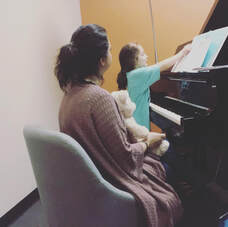

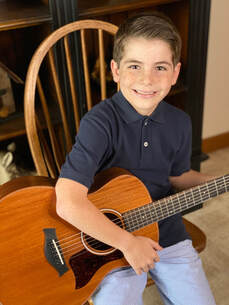
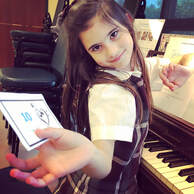
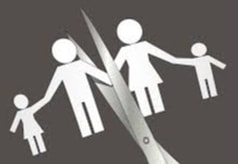
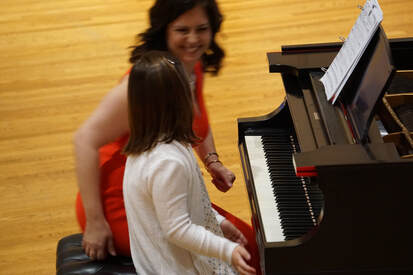



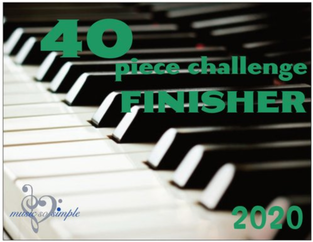

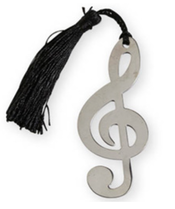
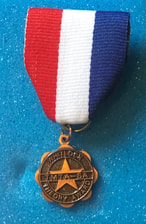
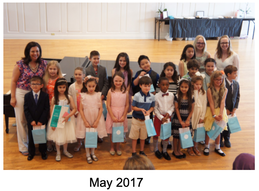
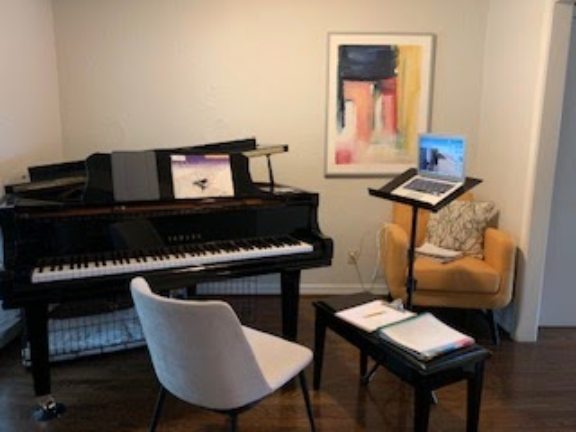
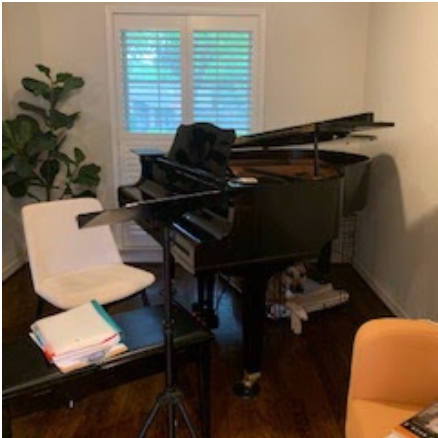
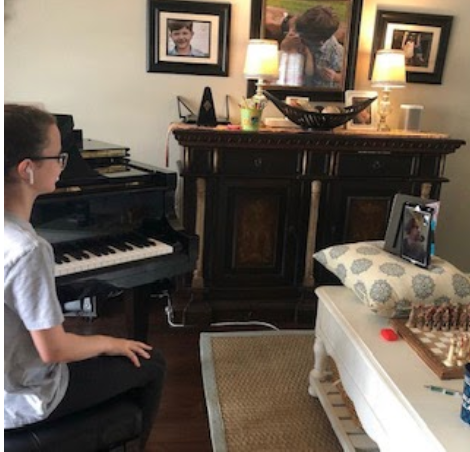
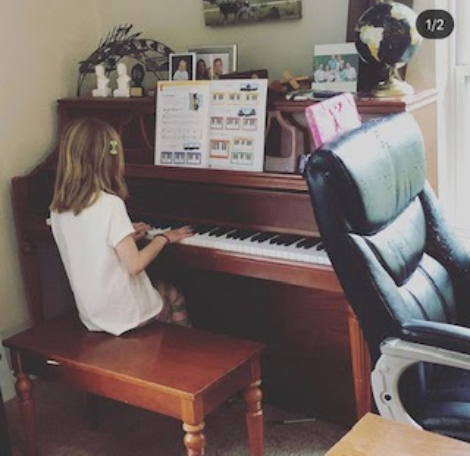

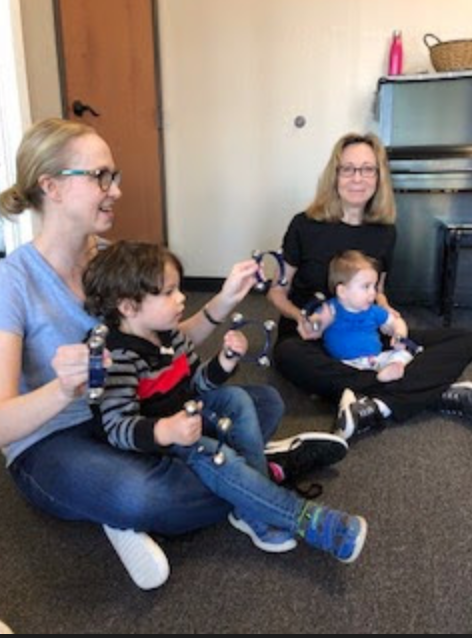
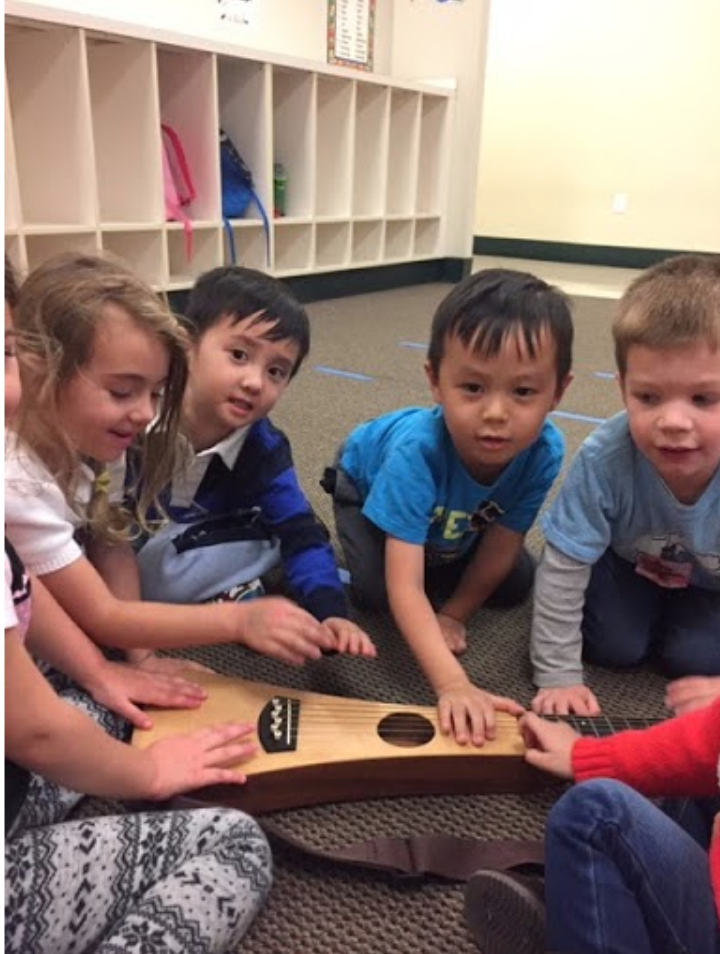
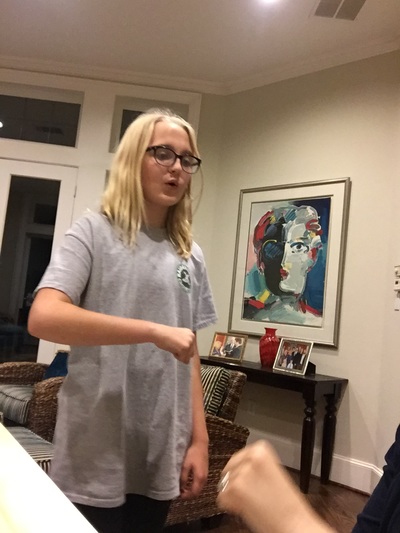
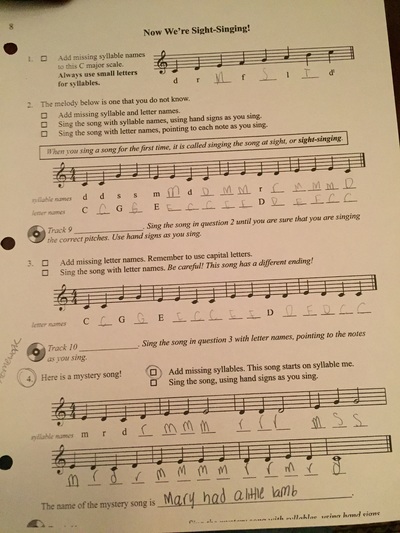
 RSS Feed
RSS Feed